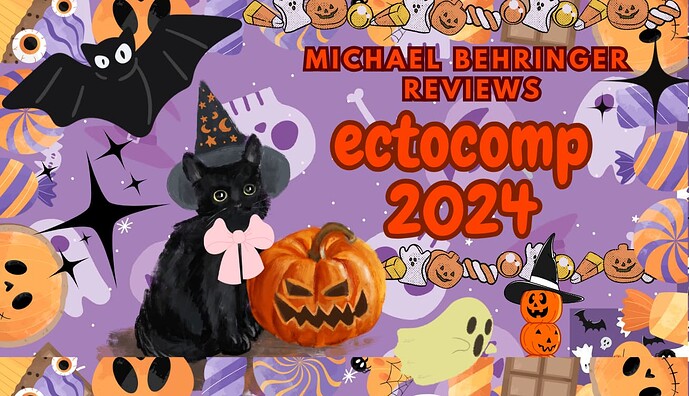do not let your left hand know — Edmund
Another face I was happy to see in the competition- it’s always a treat to see what your friends write, doubly so if it slots into areas of your existing interest. I love changelings, and more existential horror- and funny enough, parasitism, too.
This actually reminded me of several things I like- the book, The Moorchild, which is lovingly dedicated to “to all children who have ever felt different,” Mira Grant’s Parasitology novels, and some fun I had with a character a long time ago that’s made a bit of a resurgence in revisiting an old theme.
The connection to the Moorchild is a bit more obvious- it is a story about a young changeling girl, who through no fault of her own, replaces a human baby. It details her struggles with growing up and not fitting in- standing head and shoulders above the other children, with strange hair and variable eyes, and parents who love her- but grieve for their other baby, too.
She’s torn between worlds- not fitting in with the humans, not fitting in with the fairies- and she finds solace in companionship with a young boy who is also an outcast: wandering around the moors with his flock willingly, playing music, dreaming of running away from all of this and finding ‘more story’ out there, as one of my other favourite book series has the protagonist proclaim, when she rejects settling and marrying into a safe, placid life.
That friendship reminded me of the dynamic between ‘Monica’ and Vivienne- in that they were both ‘outsiders’ in their lives, (borrowed, or self made) and found solace in one aother, even if it was slightly disjointed, what with sudden jerking and spasms of a body that was never really meant to be hers to begin with.
Also, given some medical historians believe that historical cases of changelings may have been assorted manifestations of disorders, including autism- in conjunction with how many of the ways to forcibly expel a changeling are cruel, in that they strive to harm the false baby enough to get the fairies to come back and reclaim the baby- like boiling them alive, for one, though gentler manifestations involve boiling an egg in a bizarre fashion and showing it to them to trick them into exclaiming and using speech beyond their baby years, it makes a really fantastic parallel to the transphobia that Vivienne faced- the horror inherent in you are not my child, because my ‘normal’ child would not act like this, and I am willing to hurt you to reclaim them, when that was never a possibility to begin with: only cruelty, only rejection.
As for Parasitology, that brings me also around to the character arc I’ve played around with in the past/am playing with now in the TTRPG with Grayson and Jinx. In the books, the parasite takes over the host’s body, which has left her essentially brain dead: there is no more girl her father once knew, only something wearing her face like a cruel joke. Her father is horrified, and torn between whether to embrace her or shoot her: she’s detained at some point as he desperately tries to find a way to undo what cannot be undone.
The little worm is actually the main character of the story- and she has a dog, a boyfriend, a sort of pseudo mother figure, and makes a life for herself: while hollowing out the carcass of the woman who died, so that she could live. She grapples with the guilt from how her existence came to be, much like ‘Monica’ does, and it’s a fascinating character arc. To want to live, while knowing that someone else has to die to let you do so.
In my own explorations of a similar theme- a loss of bodily control, of grappling for your mental faculties and it being an uphill battle, the discomfort in inhabiting a skin that isn’t yours to claim: it has previously been used as a manifestation of the control in an abusive relationship with a telekinetic who could puppet his partner’s body: to become a highly efficient team to do objectively good things, at the price of never being able to escape him: the sense of his touch, his desire, his invasion of his body to claim for his own, to bend to his will.
It was a reflection of some of my own experiences at the time- and it was a deeply nauseating, but fulfilling thing to explore in the safe confines of writing at the time: it helped me process a lot about big, overwhelming trauma. In the current iteration of exploring in that space- it’s more so about the incompetencies of those stagnant in power, in questioning in whose hands is it to judge a life worth living, and how far a parent’s love will go for the sake of their child’s happiness.
Grappling with control of your body is a deeply powerful space to explore, and Edmund has done a fantastic job, weaving it alongside feelings of purposelessness and trans stories. Really loved this one.
For what it’s worth, I ended up going with the right hand on my first play through, (so the Lisa ending) though I did tab back to check out the left’s ending, as Jinx’s lovely template made that very easy to do. For me, the idea of that sort of powerlessness, that intense helplessness where you’re not even in control of yourself, an invasion in what should be your one bastion of safety and self assurance- that if nothing else can be controlled, you can at least master yourself: is horrific, and violating, and one that I cannot see myself choosing to cede over to another willingly. Both are very satisfying, well written endings, though!
